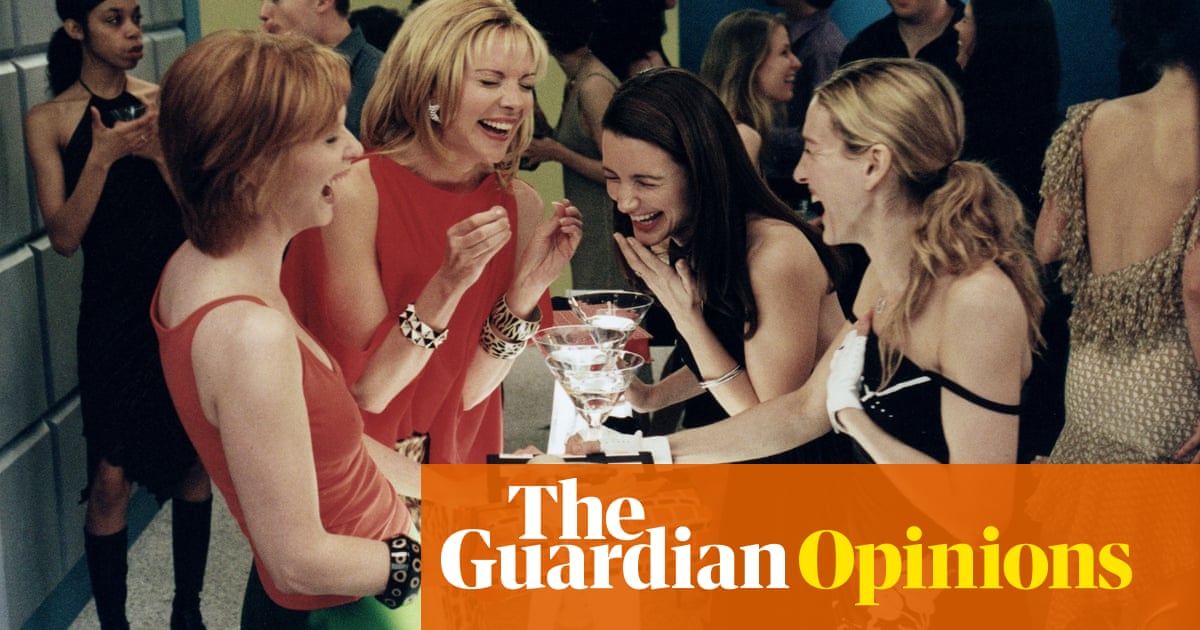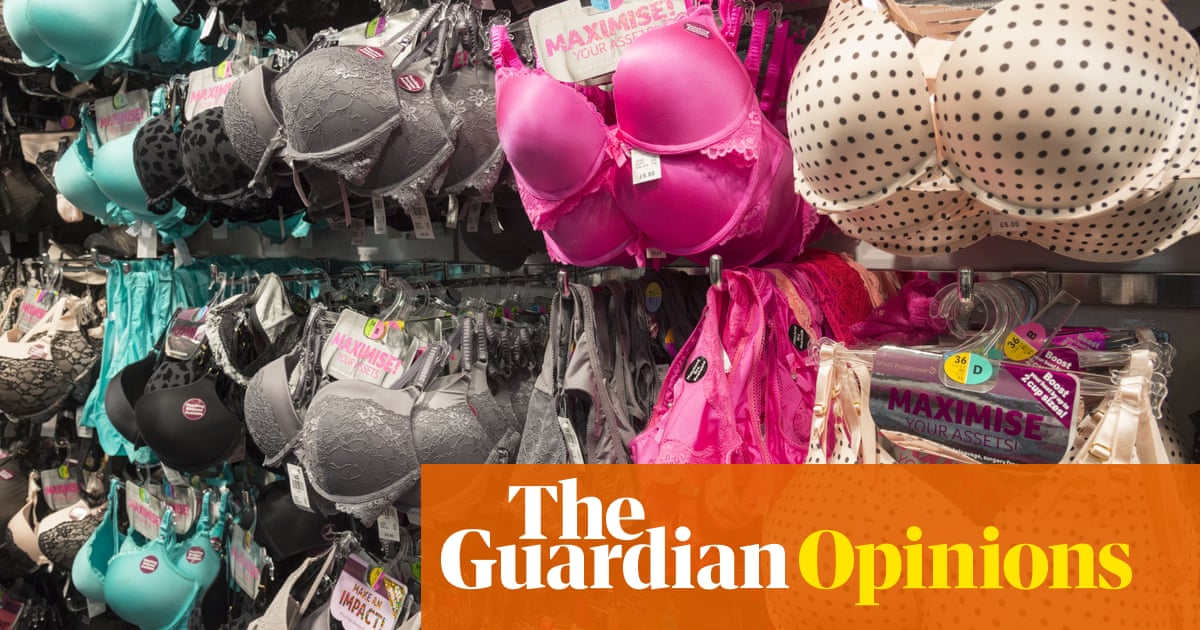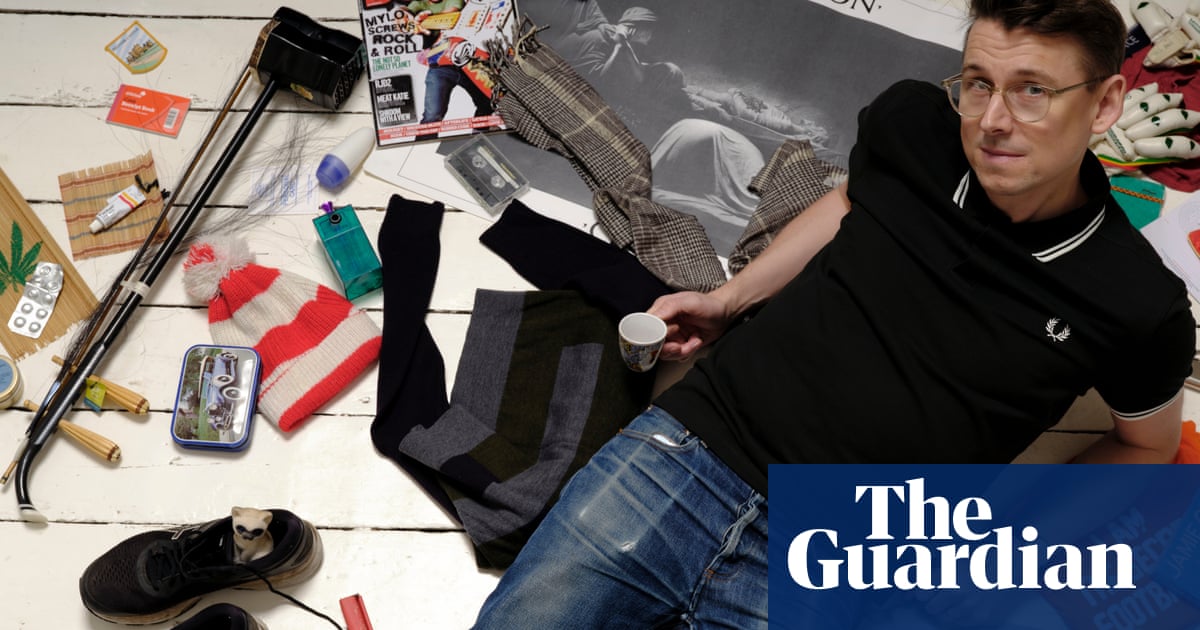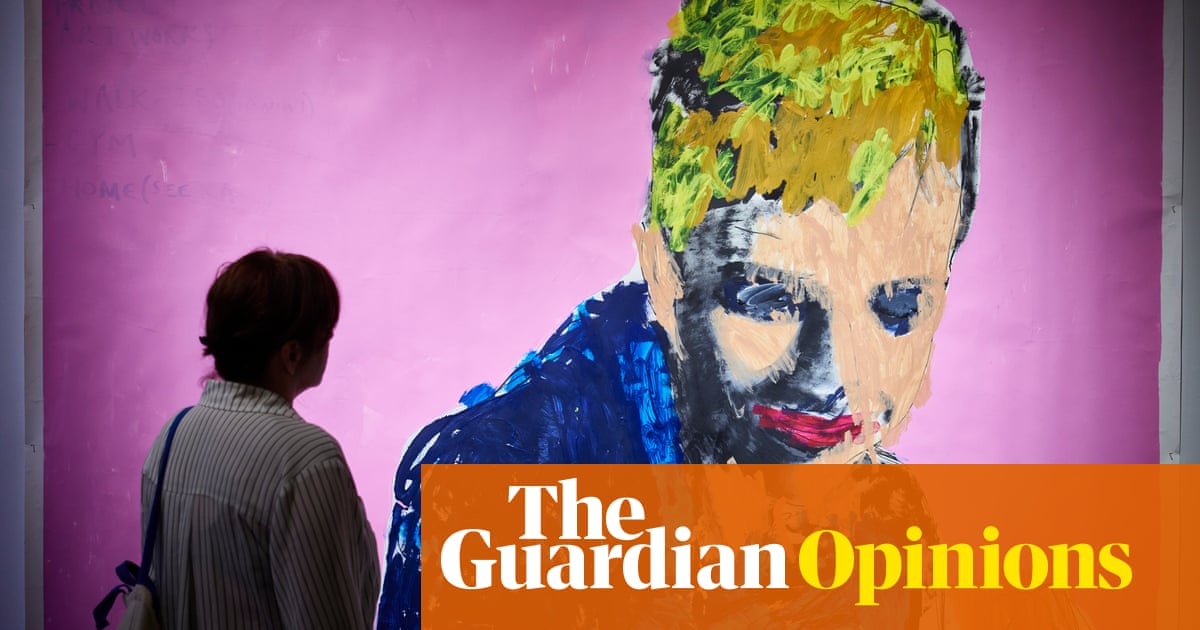
It was a decade ago, at the sharpest peak of Lena Dunham’s fame, while her show, Girls, was being heralded as a masterpiece and Dunham herself as the voice of her generation, when producers asked what she’d like to make next. Anything, they said. Something feminist with guns maybe? Something radically erotic? A romcom perhaps, with nipples in it? No, she said. “I want to make a movie about a medieval child who gets her period.” She smiles at me, somewhat primly.
That movie, Catherine Called Birdy, a comedy based on a YA novel, comes out this week and happens to coincide with the release of another film by Dunham, her first in 12 years. Sharp Stick is a more conventionally Dunham-ian project, in that a) it’s about an awkward 26-year-old’s sexual awakening, b) Dunham acts in it and c) reviews have tended to critique her rather than the film itself. In the five years since Girls ended, after years of rabid attention, she’s been relatively reclusive, emerging occasionally to report on a major operation, rehab or, last year, her “whirlwind” marriage at 35 to British-Peruvian musician Luis Felber. The attention she attracted, suffered, endured, was related in part to her lack of filter, which both contributed to the taboo-breaking telly she made and also meant the ways she navigated fame in her early 20s led to shock and sneers. Is she ready to re-enter the discourse? “No,” she says firmly. “Absolutely not.” And yet, here we are.
Dunham is in New York, vaping discreetly in a small, bright study, talking in full singsong paragraphs punctuated briefly by chuckles. “If I was afraid of the world before, it certainly hasn’t given me any more reason to be less afraid today,” she says. When she told her parents (the artists Laurie Simmons and Carroll Dunham) that she thought this medieval-period film about periods could be her most commercial project to date, they stared at her. “They were like: ‘You’re insane.’ They said: ‘You have learned nothing from your time in this business – you have a purposeful blindness. They will certainly find a reason to be enraged about your movie about a 14-year-old with her period and a crush on her uncle.’”
Were they right, I ask Dunham. About the purposeful blindness? “I think to keep producing work that is compelling to you and honest, you do have to have a certain kind of blindness, you do have to sort of forget that people are going to see it.” She pauses for half a second, maybe less. “And not to sound like a total cheeseball, but totally ‘inhabiting your artistry’ and totally ‘presenting your id’, to me, is the job of an artist.” Billie Piper, who plays the mother in Catherine, Called Birdy, tells me Dunham’s art has “shaped” her. “She feels like THE trail blazer when it comes to stories about modern women,” exposing them in ways that are “ugly and confrontational, weak and beautifully surprising” and also very funny. Her work “made me ask myself: ‘Can I maybe say those things, too?’” she continues. “In many ways, she did as much for me as seven years in therapy.”
Dunham herself leans towards artists who are able to “channel their inner landscape in all of its roiling intensity”, she says. “The joy of that is that it can make us feel very much less alone. But I don’t think you can also hold on to a sense of what people want or are afraid of. And in a way, I’ve always had that quality since I was a little kid, this sort of amnesia about what… bothers people.”
In the past the things that have bothered people about Dunham have ranged from her excessive nudity and undeniable privilege to the amount she was paid for her memoir. Since her 20s she’s been a lightning rod for politicised anger. The left criticised her non-diverse casting on Girls and accused her of casual racism; the right sees her as a woke degenerate. She hired security guards after receiving threats, including one where somebody sent her the floor plans to her house, pointing out where her bedroom was. She has long been a pawn in the culture wars – the fight over Lena Dunham has always been about far more than just Lena Dunham.
“I was lying on a diving board in Los Angeles, at my friend’s vacant house, on the phone with my dad,” she tells me. “And I was saying: ‘Are these things going to be attached to me forever? If I was a man…’ And my dad stopped me, like: ‘You gotta pay to play, sweetheart.’” He was right, she admits: at some point she has to stop fighting. And lying in the sun in a private pool, she realised she had to find acceptance. “Because if I was always in a state of resistance, I would walk around with such a chip on my shoulder. But the fact that in order to write about a movie of mine, there have to be three paragraphs disseminating my ‘history’ is not my life’s dream.”
Her story has become a part of her story, like one of those images where a person is reading a book about a person reading a book about a person reading a book – if you keep zooming into the cover you start to feel faint. Recently, in an interview, she was asked: “Why do you think people dislike you so much?” She paused in response. “Then I was like: ‘You know what? I actually don’t have to answer that.’ And what an amazing lesson that was in every aspect of life. I used to think I owed everyone an answer about everything, or at least an apology.” No longer.
At times, Dunham’s apologies became as much a part of her story as her work – she issued so many a bot on Twitter automatically generates them. The New York Times later described her as “actor, writer, director, controversy creator”. She sighs. “That was not a job I wanted and is a job that I respectfully resigned from.” After Girls’ sixth season (and ninth award), she quietly… disappeared. She broke up with her longtime boyfriend, entered rehab for an addiction to benzodiazepines and dissolved her creative partnership with Girls co-showrunner Jenni Konner. “Though my voice is loud, I’m actually a person who feels most comfortable alone in the world of thoughts and books. I had an instinct that taking some time away was going to be necessary to survive – there was a little while there when I wasn’t hearing my own voice.” To write, she says, you need to feel “like you’re a hound that’s smelled a fox and you just have to chase it all the way into its hole. My senses had been blunted by the experience of being in the world in that way.” By which she means: constantly scrutinised.
In the production notes for Sharp Stick (a film her father describes as a “sexual fable”) she discusses the “fear that formed her femininity”, and how the public response to her naked body in Girls “was a trauma all of its own. I had always thought there was something crude or superficial about caring how people responded to me, so I tried really hard in my 20s to act as if I didn’t notice.” It’s like having a bad boyfriend, she says: you learn to compartmentalise the insults. “I thought I could receive all this input about what a hideous cow I was and also hold on to this feeling that I am essentially, you know, lovely?”
Dunham’s thesis is that we’re all born believing ourselves to be lovely until at some point a parent or boy or advert reveals our hideousness. Surprise! “For some of us, that comes very young. For me, brought up in a feminist household, it came a little bit later. I wasn’t hit with the signal that I was not ‘correctly formed’ until the public really let me know. I thought I could keep those two things separate.” Until she couldn’t. “All of that feedback contributed to the formation of self. And I stopped being a person that I liked.” For a long time she was embarrassed. Wasn’t this experience specific to being a celebrity, and therefore deeply unrelatable? But as the years passed she came to realise that a version of what happened to her was also happening to millions of women across the world. She started recording a podcast, the C-Word, with her friend Alissa Bennett, which goes deep on dead or forgotten women dismissed by society as crazy, like Mary Shelley or Amy Winehouse. “And I found engaging with history can be a good way to understand your present. The 70 hours we’ve done in that podcast have been as helpful to me as therapy, if not more so.” The new series launches with a two-parter on Lindsay Lohan.
Rereading the press around her first memoir brings the discomfort now familiar when looking back at the pop culture of the recent past: patronising, picky, often breathtakingly cruel. She’s currently working on a second volume. “In my first book, every story needed to be tied up with a cute little bow. Like: ‘And that’s how this made me the fun, funky CEO I am today.’ And now I’m very comfortable being like: ‘Actually, this made me a terrified bed dweller.’” In her 20s, while she was writing, directing and acting in Girls, she was also in pain. At the Met Gala in 2017 she collapsed and was rushed to hospital. She’d had five operations for her endometriosis that year and later had a hysterectomy. “Chronic pain is another one of those things, like ‘chronic internet trolling’, that I didn’t give enough credit to in my 20s. Now I view everything that happened then through a lens of pain – this sort of ozone layer that no one can see around you, that defines your reactions.”
Her pain has receded since her hysterectomy, but not gone entirely – but now she knows when to stop working, when to go to bed. “And the funny thing is, now I’m much ‘curvier’, ‘bigger’, whatever, than I was in my 20s it’s wild to me that THAT was the body everybody critiqued: the body of an anxious, emaciated, aching person. I look at her and can’t believe that little hurting girl was subjected to this. What does that say to everybody else in the world? Now I’m able to very proudly be in the body I’m in, recognising what it’s taken to get here.”
When she checked into hospital, she told doctors she wouldn’t leave until they either stopped the pain or removed her uterus and cervix. It was a controversial decision, meaning she won’t be able to have children. Decision, she stops me, is the wrong word. “It was one of those decisions where… it’s not really a decision? I struggled with this idea, that I had chosen my own health over being able to bear children. But really it wasn’t a choice at all because the person I would have continued to be had I remained in that kind of pain would not have been a person I could really live as.” The hysterectomy allowed “this vista of possibility”, she says. “I didn’t realise how much of my time had been taken up with the concerns of my body.”
Her memories of the weeks she spent in hospital are hazy. But she had to fight hard to persuade the doctors the operation was what she needed. “It was like the hardest Hollywood pitch I’ve ever done.” And even there, her story followed her. One day she was lying in a recovery bay on an IV drip when a nurse casually asked why she was so often naked on TV. She rolls her eyes remembering. “When we saw that same nurse a year later, my mother said: ‘We don’t want her. She wasn’t nice.’ Of course my response to her at the time was just: ‘I’m so sorry.’”
“There is no state of being for Lena other than making things and inventing worlds,” says Joe Alwyn, who stars in Catherine Called Birdy (and is the partner of Dunham’s friend Taylor Swift, a bridesmaid at her wedding). And it’s true. Even when she was lying low she was working, directing the pilot of HBO’s Industry, for instance, and appearing in Tarantino’s Once Upon a Time in Hollywood. It’s exciting to be with her, Alwyn adds. Exciting to watch her win over a Covid-weary British film crew in Shropshire. “Wearing her full-length glittery coat, she’d scoop up a chicken, tell the horse wrangler how ‘fabulous’ they’re looking today and march through the mud to the next set-up.”
She hopes audiences will see similarities between Girls and Birdy, despite the latter being set among the great muds of medieval England rather than the caffeinated glamour of Brooklyn. I ask: is it odd to still be defined by something she made so young? “To be defined by anything feels so lucky. Girls come up to me all the time, like: ‘I fall asleep to the show every night.’ And that’s all I ever wanted.” She looks a little moved by the realisation.
“In my 20s I thought I had to be, like, a ‘big business bitch’. Now I understand that I can have a life in this industry and still be a weirdo who hangs out in this tiny room, watercolouring.” Part of this understanding came from her time in rehab. When she arrived, to wean herself off the anti-anxiety pills she took to deal with public life, she thought her life was over – her relationship, her career – and she worried everything she’d ever done would be viewed through the lens of addiction. “Now I always joke that I wish everybody could go to rehab.” It’s not entirely a joke: she supports Friendly House treatment centres that accept women regardless of financial situation. In rehab she learned the value of stillness, she says. “I’d been there for 28 days when a girl and I found a blue robin’s egg. We were as excited as if we were at a fucking One Direction concert. A nervous breakdown of joy!” She removes a scrunchie from her hair and shivers with quiet glee.
In April, US gameshow Jeopardy asked the question: “Who is Lena Dunham?” She leans her head to the side. “I’d love to know the answer!” There is a rare, deep pause. “Something about public life is that you’re forced to define yourself, and then try to remain in that definition forever.” But what she’s learned, she says, is how exciting it is to mess with that definition, or expand it, or change – to shrug off attempts at likability, perfection, speed. “One thing my 20s did,” she vapes, “is made me quite bored of the sound of my own name. Now I find I’m way more interested in saying: ‘Enough about me – who are you?’”












